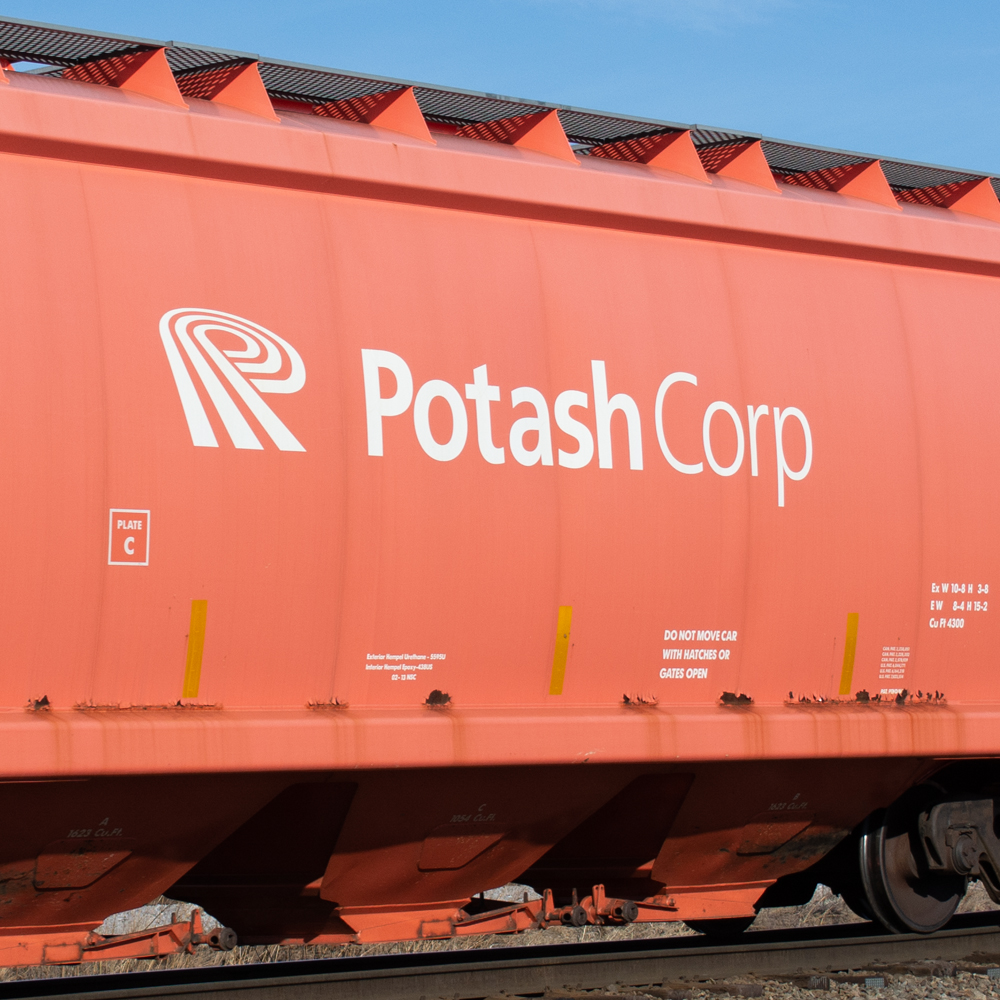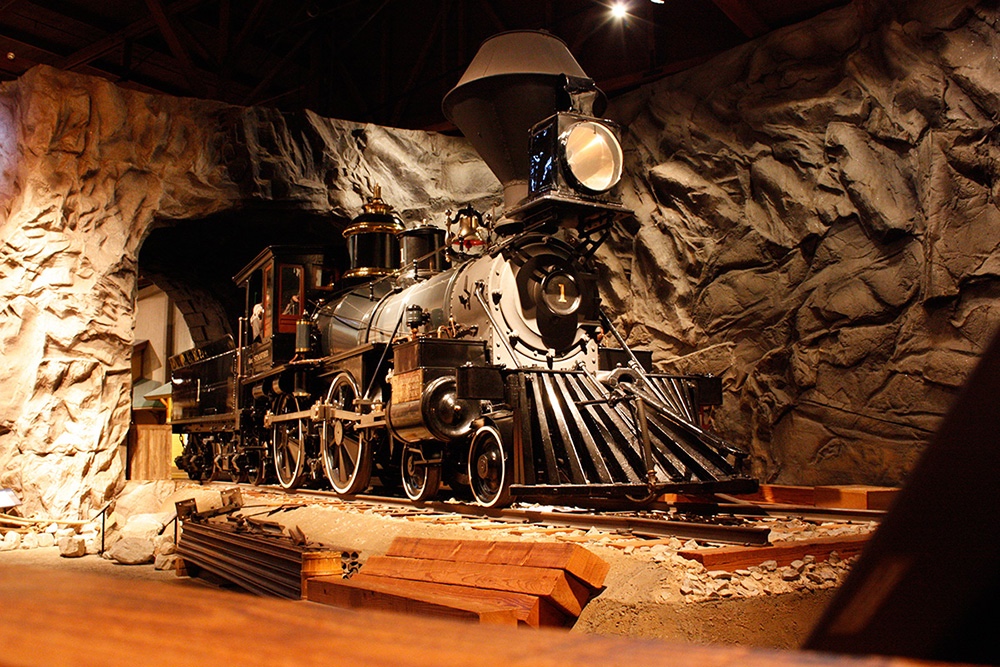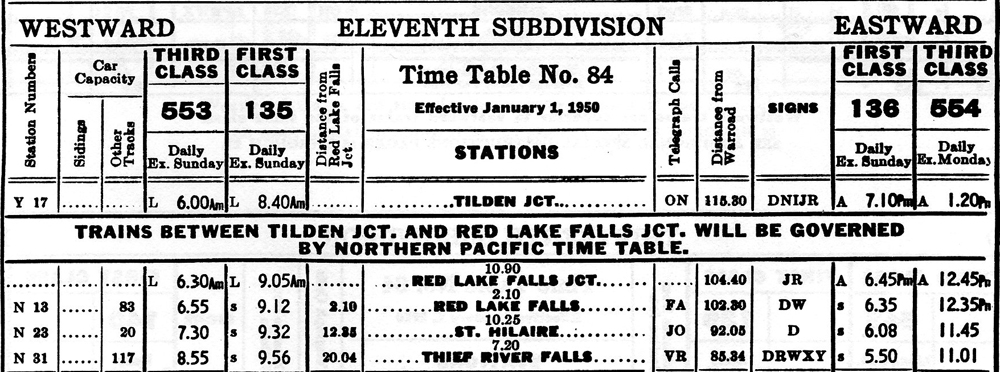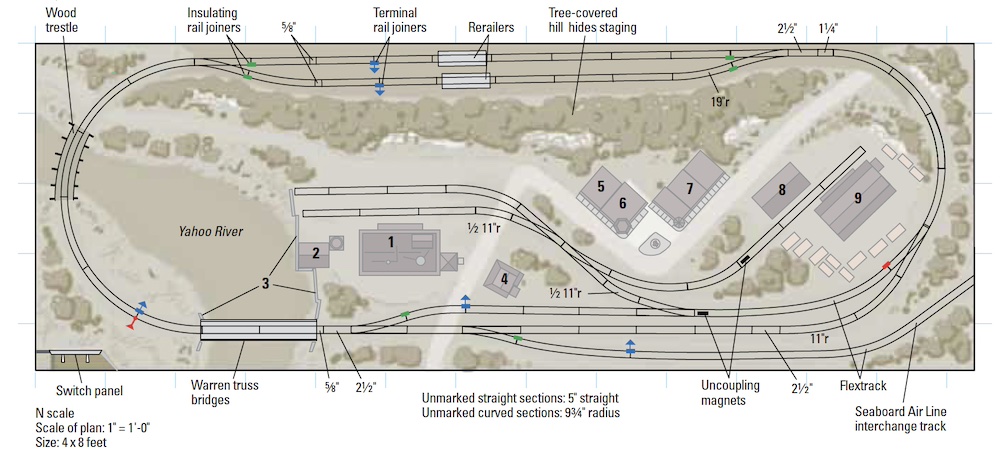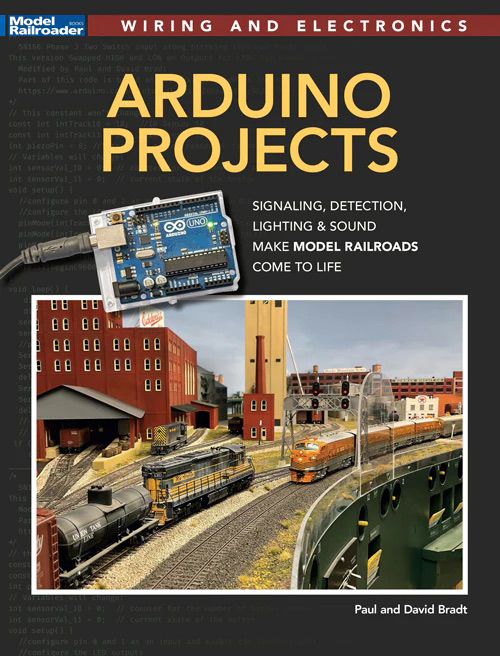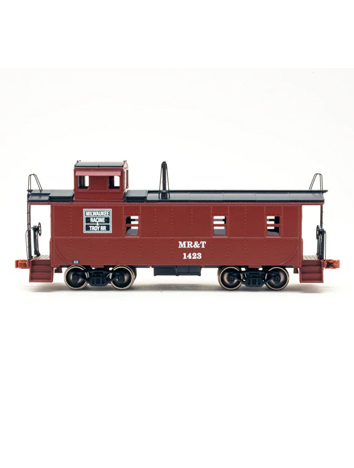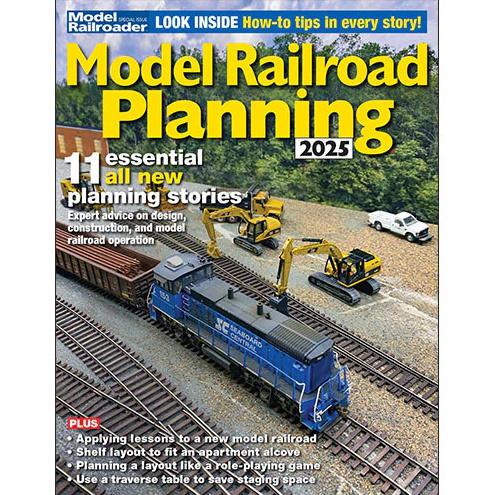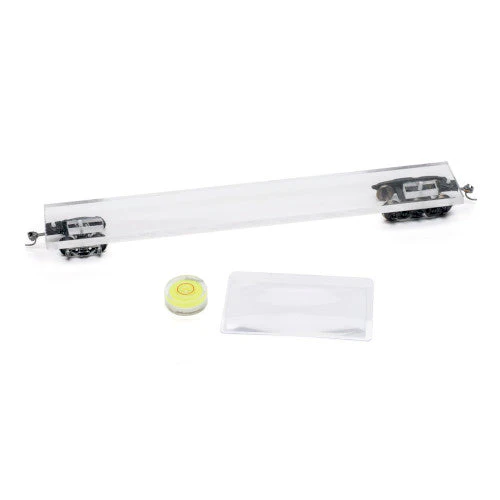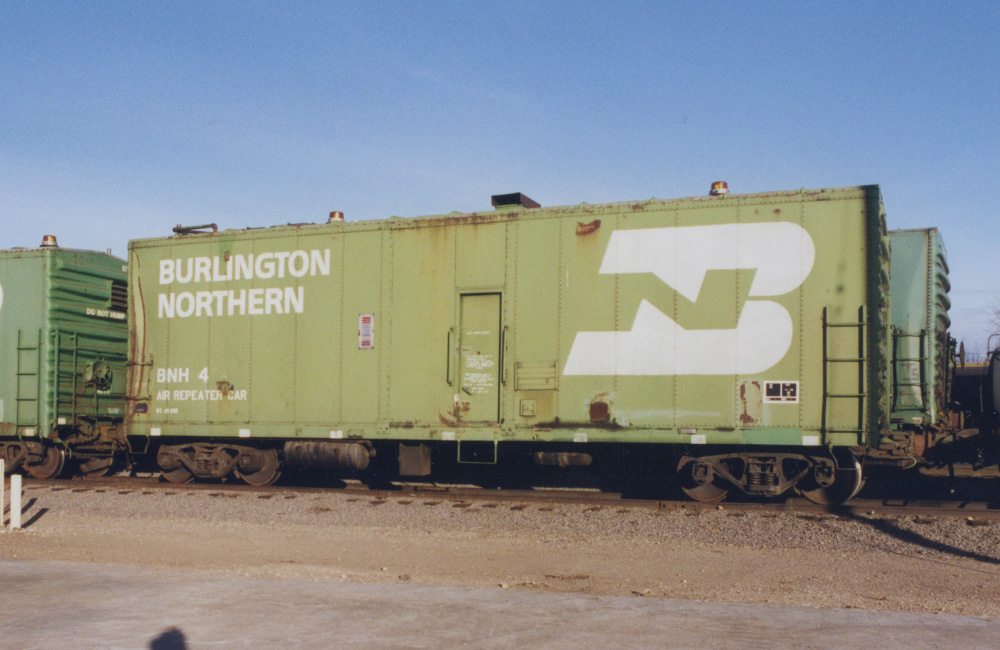
Q: While browsing a railcar photo site, I came across an interesting Burlington Northern car. The photo’s caption calls it an “air repeater car.” What is its intended purpose? Where is it mainly used? – Tom Huffman, Fort Worth, Texas
A: An air repeater car is used to keep up the pressure in brake air lines in very cold weather, when the temperature can cause metal brake line couplings to shrink and rubber air hoses and gaskets to become brittle, all of which led to air leaks. While pumping more air into the system worked for a while, as trains got longer in the 1960s, it wasn’t possible to keep up with the leaks. Enter the air repeater car.
Great Northern converted a 40-foot boxcar into its first air repeater car, Air Car 3, in 1964, and two more in 1969. The cars contain a diesel motor, a fuel tank, an air compressor, and a thermostat that would automatically turn the system on when the temperature got low enough. Great Northern stationed the cars along the Hi Line, its track through Minnesota, North Dakota, and Montana, where temperatures could drop as low as -45° F in January and February.
The cars were a success, and Burlington Northern, GN’s successor, built a total of 30 over the next 17 years, all converted from various kinds of retired boxcars. In addition to the “Air Repeater Car” stenciled on their sides, they were also identifiable by the manway door and stirrup step installed in the side and the indicator beacon on the roof. (The beacon was there to let the train crew know when the compressor was running.) All were painted Cascade Green and white. Other railroads, such as Canadian National, Canadian Pacific, and Southern Pacific, also built their own versions. You can see a picture of a contemporary CN version (called a “Distributed Braking Car”) in another recent “Ask Trains” column and read more about how they work and how to model them in “Cody’s Trackside Finds.”
Send us your questions
Got a question about modeling, operation, or prototype railroading? E-mail it to us at AskTrains@Trains.com. Include your full name and hometown and put “Ask MR” in the subject.







